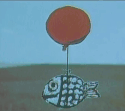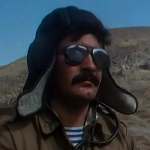|
Yeah, I imagine private yacht owners are, as a class, shitheads. But anyway I don't think the fact that O'Brian wasn't an old sea hand isn't inherently shameful or anything. Like I don't think most readers expect that Homer could have killed Hector just because he composed a work in which he describes Achilles doing so. The problem is when somehow or other that presumption does get made--like in the case of people giving guys like Clancy a platform in which he's presented as a subject matter expert instead of a crafter of fantasies. I'm agnostic about O'Brian's physical competencies, along with being agnostic about all of the other biographical speculations that cropped up late in his life. I was just throwing it out there as a "fiction writers and their naval expertise" anecdote.
|
|
|
|

|
| # ? Jun 3, 2024 15:54 |
|
It did turn out that O'Brian had made up all his previous life; he had been a prodigy of sorts, publishing his first novel at 15. After WWII he left his first wife and son, married a new wife, changed his name, and made up a past he approved of. e: Dorothy Sayers did a lot of research to turn Lord Peter Wimsey into a famous oenophile. This resulted in her fans/interviewers constantly offering her vintage port, which she hated.
|
|
|
|
zoux posted:How dare Tom Perkins Belvedere publish slanderous lies such as that, it's quite clearly not true. Speaking as a tall ship sailor who also had some training on modern yachts later, it's possible. Even as a deckhand on board an authentic ship of the period it's entirely possible to get extremely good at handling the rigging and working aloft and generally being active and useful while having very little idea of how to maneuver a ship under sail or basic sail theory, because your entire world consists of remembering which lines do what and go and when to make them do the things they do and how (my first vessel, a relatively small 100-foot ketch, had 88+ lines if I recall correctly). Unless you actively work at it and are instructed in it, it's very easy to learn how to respond to orders without having the faintest clue what the ship is actually doing relative to anything else on the water. Navigation and the difficulties of are even more advanced things that a trainee probably wouldn't be asked to do much of beyond plotting his position during hourly nav checks*, without any idea of how one should direct the boat to go anywhere, how to counteract the effects of wind and tide, how to judge how long a given journey might take and how to plan for it, etc. Even steering the boat isn't likely to bring much practical experience in how to actually drive the boat, because as a helmsman you're mostly following a course your watch leader sets out and most of the time you're just running in a straight line and maybe changing course once in a four hour watch, if that. Complex maneuvers are more for showing off, tight navigational corridors, combat, and docking - and in all those cases you DEFINITELY want to be telling the trainee exactly what to do, assuming you wanted a trainee at the helm at all. Plus, as I understood it Patrick's early experience was on a square-rigged vessel - these don't worry about crash gybing nearly as much as modern yachts do, and probably wouldn't have been hammered into his training the way you do for modern yacht sailors. (To explain - crash jybing (or gybing, whatever, there's a million ways to name it) is when you bring the stern of the ship through the eye of the wind without meaning to while running downwind. This is bad on a fore and aft rig (that is, a rig where the sails run parallel to the ship usually) like most modern yachts are because when you're running downwind, the boom holding the bottom edge of your mainsail is going to be swung as close to perpendicular as the boat as you can get in one direction, and jybing would cause the boom to quickly and suddenly slam over perpendicular on the other side - leaving aside the risk of bashing someone in the head it also stresses the parts pretty badly and can potentially cause a lot of damage to the boat, which is one it's one of the biggest things yacht sailors are warned against doing. On a square-rigged vessel, however, the sails are generally perpendicular to the ship already by default and there's no serious risk of a gybe causing the yards to slam one way or another. Thus, if you're mostly trained on the one, you're not conditioned to be as wary of causing that particular accident on the other.) Meanwhile, theoretical knowledge of what one should do in a given sailing situation is VERY different from making those decisions in a command position on the water. I realize this sounds trite, but it's true - there's a lot happening at once, the variables are shifting with every second you use to think about what's happening, and sometimes things happen VERY quickly. Being able to work out an interesting sailing scenario and the correct decisions while sitting at an armchair with some pen and paper and a bottle of wine nearby is just completely different from being on a bouncing deck with the wind having just shifted and the sail making bad flappy noises and spray half-blinding you and poo poo was that buoy over there the one you were supposed to keep to port or starboard and crap what's that other guy doing is he going to follow the rules of the road or is he an idiot he's getting real close oh god. Going from a deckhand on a large vessel to being trained for command of a small one was a revelation in all the thinking that goes into even the simplest decisions, even just "turning from left to right." Not only that, but there's so many fine skills and sometimes unconscious habits that help make a good sailor that any time off boats degrades experience very very quickly - "I've forgotten more than you'll ever know" is a very real feeling sensation I get when I've been away from boats for too long (like I have because COVID, hooray). To bring this back to MilHist a bit this was apparently a serious issue in the Royal Navy during the 18th century when by the time a new war started most of the old captains and admirals had forgotten most of their relevant battle-fighting skills in the peace and had to relearn them. If he hadn't been on boats since his youth it's completely plausible that he would have forgotten everything about practical sail handling later in life, even if he maintained the emotional memories and the feel of the boats. So in sum, it's plausible to me that O'Brian might have had some experience sailing in his youth on a tall ship, but ended up completely forgetting about most of it later in life or having never learned the skills relevant to modern yachts to begin with. Though, given how much he concealed about his actual personal history it's also plausible that he did just make up his past on boats as well, so who knows. Edit: Also, there's the fact that being good at ONE boat doesn't mean you're automatically good at every other boat, with different handling characteristics. It takes a little time to get used to a new boat and their quirks. My first vessel had a habit of not responding at all to the wheel for a few seconds, at which point it'd suddenly turn 360 degrees on a dime if you'd been silly and kept going hard over because the helm didn't seem to be responding. * Come to think of it, even plotting position was something trainees did on my boats solely because this just required looking at the GPS and and marking the position on the chart with a record of the date and time. In an age without GPS that still relied on celestial and landmark navigation it's entirely possible that trainees wouldn't have been allowed anywhere near navigation. Tomn fucked around with this message at 23:24 on May 21, 2021 |
|
|
|
I was making a joke based on my admiration for O'Brien as an author y'all
|
|
|
|
Cessna posted:Huh. In the British/Commonwealth forces WO's are 'just' are the the most senior SNCOs (and those inverted commas are doing a lot of work, since SNCOs are the backbone of the entire military machine!). In terms of the NATO rank scale British WOs are 'other ranks' - OR-8 for WO2s and OR-9 for WO1s. There isn't the whole extra domain of WO-x ranks that the US uses. Warrant officers fill a similar role - being very experienced and usually having some specific training or expertise in a particular field - but they're still SNCOs. I guess this is why commissioning from the ranks is relatively unusual in the US military? There's a whole additional class of ranks, with its own progression and structure, specifically for SNCOs to advance to where they can take on executive and leadership roles without becoming commissioned officers. While British/Commonwealth WOs can - and certainly do - hold important managerial and executive roles at a unit and staff level, they are definitely encouraged to go for a commission if they want to take their career down that particular direction. SubG posted:Yeah, I imagine private yacht owners are, as a class, shitheads. Yeah, precisely. It doesn't matter that it seems that most (if not all) of O'Brian's claimed sailing and sea experience was either greatly exaggerated or entirely fabricated. I'm lucky enough to have a lot of sailing experience, some of it in the open ocean, and O'Brian's writing in terms of technical accuracy, illustrative description and the ability to conjure an emotional response to the situations he's writing about are absolutely spot on - far more accurate and evocative than many other writers in the genre who indisputably have years and tens of thousands of nautical miles' of experience to draw on. I don't care if O'Brian never so much as went on a cross-Channel ferry - the long chase between the Leopard and the Waakzaamheid is a pinnacle of nautical writing, whether he cribbed it from contemporary journals, got descriptions from the old sailors who went on the windjammers through the Roaring Forties or the words just spilled out of his brain and happened to be right.
|
|
|
|
Thomamelas posted:I double checked, and it's actually a grenade launcher. The machine gun is 7.62mm. It's basically a very upgunned river boat. I mean I figured about as much. I also figured the Caspian was pretty busy with waves and crap. There's a few vids of people surfiing it
|
|
|
|
Aside, I looked up the yacht O'Brian was on and that thing's a bloody monster. It's not something I'd throw at an inexperienced helmsman.
|
|
|
|
Milo and POTUS posted:I mean I figured about as much. I also figured the Caspian was pretty busy with waves and crap. There's a few vids of people surfiing it Yeah, I imagine that any day that would make for good surfing would be a loving nightmare to take those out into the sea. This is purely speculation but unless it's a super calm period, I imagine they hug the shore when moving around the Caspian.
|
|
|
|
feedmegin posted:Praisegod Barebones and his mates From last page, but this is the most Terry Pratchett name I've ever seen a real person have.
|
|
|
|
Loezi posted:From last page, but this is the most Terry Pratchett name I've ever seen a real person have. Where do you think Pratchett gets this stuff from? Vimes' ancestor 'Suffer-not-injustice' Vimes is canonically the guy who executed the last King of Ankh-Morpork. Pratchett was British, knew his history, and knew what he was doing.
|
|
|
|
If you want to see some good stuff old fashioned balls to the wall names wise look as some Napoleonic and 19th century army/navy officer names in general.
|
|
|
|
|
SeanBeansShako posted:If you want to see some good stuff old fashioned balls to the wall names wise look as some Napoleonic and 19th century army/navy officer names in general. Link? I don't know how to look this up.
|
|
|
|
Just some examples, you need to read some books as there isn't a dedicated whacky historical white dude name portal yet. Coote_Manningham FitzRoy Somerset Christian Friedrich Wilhelm von Ompteda
|
|
|
|
|
SeanBeansShako posted:If you want to see some good stuff old fashioned balls to the wall names wise look as some Napoleonic and 19th century army/navy officer names in general. Don't forget the puritans.
|
|
|
|
I'm away from my books at the moment but later tonight I've got a list of 19th century Nigerian converts to Anglican Christianity that has really wonderful names E: my family tree contains a distant "Montgomery Zebulon Helmet" Tulip fucked around with this message at 15:57 on May 22, 2021 |
|
|
|
There was a confederate called States Rights Gist
|
|
|
|
Abongination posted:There was a confederate called States Rights Gist Wait are people trying to say the whole civil war was over just this one guy?
|
|
|
|
Gaius Marius posted:Wait are people trying to say the whole civil war was over just this one guy? That's the Gist of it
|
|
|
|
He was the one guy who couldn't grow a beard. Truly a tragedy.
|
|
|
|
|
Were any studies done on what an exclusively Austria-Hungary vs Serbia 1914 conflict would have looked like? Certainly heavy casualties and unforced errors from AH to start with but would they have been expected to get their poo poo together if they just had the one front to worry about before internal pressures and embarassment got to be too much?
|
|
|
|
BalloonFish posted:I don't care if O'Brian never so much as went on a cross-Channel ferry - the long chase between the Leopard and the Waakzaamheid is a pinnacle of nautical writing, whether he cribbed it from contemporary journals, got descriptions from the old sailors who went on the windjammers through the Roaring Forties or the words just spilled out of his brain and happened to be right. Not an empty quote Also, WTF, block quoting this book review: quote:His latest piece of narrative napalm, The Bomber Mafia, is an attempt to retcon the history of American aerial warfare by arguing that developing the capacity to explode anything, anywhere in the world has made America and, indeed, the rest of the globe, unequivocally safer. Cool, giving...strategic bombing the "huzzah for Silicon Valley treatment"? quote:According to Gladwell himself, his latest book is “designed to be heard (as well as read),” which depending on one’s interpretation is either savvy marketing or a pre-emptive defense of the extreme cringe on the page, peppered with asides like “That is so Air Force” or “And this is my favorite part.” quote:His last piece in the [New Yorker], published in January 2019, was a brief, favorable, and widely condemned review of Tell Your Children: The Truth About Marijuana, Mental Illness, and Violence, the reefer madness book published by Alex Berenson, whom Fox News later conscripted to star in two episodes of its short-lived program COVID Contrarian. e:MOAR quote:Drawing a false distinction between the Bomber Mafia and the British and American military leaders who preceded them allows Gladwell to make the case that a few committed brainiacs developed a humane, “tactical” kind of air power that has built the security of the world we live in today. FFS: quote:Also, it’s true that dropping a bomb without a good tool to see where you’re dropping it is pretty hard: “A factory might be big and obvious up close, but from that far up, it looks like a postage stamp,” Gladwell discerns for the reader early on. Nebakenezzer fucked around with this message at 17:23 on May 22, 2021 |
|
|
|
Biffmotron posted:You literally couldn't pay me enough to read Gladwell's book, but here's a review So I've gotten most of the way through this review but the author is starting into the whole "Atomic bombs as a message to the Soviets" myth e: quote:Imperial Japan was staunchly anticommunist, and under American post-war dominion, the country would remain that way. But Gladwell is unequipped to supply the necessary geopolitical context that could meaningfully explain why the American government would force an unconditional surrender when the possibility of negotiation remained totally live. Uh, the Casablanca Declaration squashed this chance, and it only existed because the Imperial Japanese were grasping at literally the last straw? Nebakenezzer fucked around with this message at 17:38 on May 22, 2021 |
|
|
|
Tomn posted:Aside, I looked up the yacht O'Brian was on and that thing's a bloody monster. It's not something I'd throw at an inexperienced helmsman. yeah this is like being shocked when Bernard Cornwell seems out of place fighting in a shield wall
|
|
|
|
Nebakenezzer posted:So I've gotten most of the way through this review but the author is starting into the whole "Atomic bombs as a message to the Soviets" myth He doesn't say this.
|
|
|
|
Tomn posted:Aside, I looked up the yacht O'Brian was on and that thing's a bloody monster. It's not something I'd throw at an inexperienced helmsman. It had never occurred to me that O'Brian was a master sailor. Whenever I pictured the author it was someone who spent all his time in libraries and archives, sifting through thousands of old logs and letters and papers looking for treasure.
|
|
|
|
I dont think I'm going to read the Gladwell book, but he was on Dan Snow's podcast and his thesis there seemed to describe a tension between two schools of thought. Curtis LeMay vs the Bomber Mafia. Curtis LeMay's strategy was to cause as much damage to the enemy as possible and speed up capitulation. The Bomber Mafia's argument is described as using precision bombing to cause large scale changes in living conditions that could strongly affect the enemy's will. An example of that the author would call an application of LeMay's strategy would be Dresden. For the Bomber Mafia, Gladwell spoke about a meeting in the 20s or 30s where that 'mafia' explained they could drop <20 bombs and destroy fresh water to NYC, which would cause a similar breaking of will as the siege of London or the firebombing of Dresden treatments were intended and require evacuation, but with a much lower loss of life and NYC would be effectively neutralized. I believe he described the mafia's argument as potentially even more effective to encourage the enemy to sue for peace, because instead of creating a bunch of vengeful survivors, it creates people who could fix the problem if only they could be sure people wouldn't destroy the facilities again. I might be misremembering this conclusion, however. In WW2, LeMay won and Gladwell argued (in the podcast) that it probably was the right call for that war because we couldnt precisely target well early in the war. But LeMay's ideological victory extended to Korea and Vietnam where it provided the future North Korean and Vietnamese with beef with the US that certainly had negative long term effects and doesn't appear to have resulted in capitulation in either case. Also, horrible to the people's of those countries, but without tangible benefit to the US. All of this then sums up to the idea that eventually the Bomber Mafia's ideas won and now we use precision strikes. The argument appeared to be "precision strikes were a better more effective strategy than trying to carpet bomb the middle east into submission". I'm not really interested enough in the topic to put the book on my reading list; I have too many irons in the fire to do more than listen to a stranger opine while I run. Still, the reviews he quoted above seem to be suggesting that either his book's content didn't match the podcast (very plausible) or is holding the author to a standard not usually applied to historical arguments (also very plausible). piL fucked around with this message at 18:05 on May 22, 2021 |
|
|
|
Was it really that hard to identify a factory from high up or is it more a difficulty of pathfinding.
|
|
|
|
Milo and POTUS posted:Was it really that hard to identify a factory from high up or is it more a difficulty of pathfinding. It's not about identifying the target, it's about hitting it. IIRC from 20,000 feet a B17 could be expected to land about a third of its bombs within 1000 feet of its point of aim. I might be off on the specific numbers, but that's the ballpark. Lower is more accurate, but lower is also more dangerous.
|
|
|
|
Also, high explosive bombs are just kind of bad at taking out factories. The machinery itself is surprisingly durable and robust, and most of it can be repaired if you knock it around. The factory buildings themselves are usually pretty easily rebuilt and replaced, as we're talking more along the lines of really huge sheds (as far as the construction goes) than a huge brick and mortar edifice. edit: that was a huge reason why the British adopted the policy of "de-housing" factory workers, aka bombing population centers. A factory that looks flattened from the air might only be out of commission for a couple of weeks or maybe a couple of months if it was really slammed, but if you flatten the housing of the workers that's a much bigger issue for productivity. At least that's how the reasoning went, it didn't really pan out the way they hoped.
|
|
|
|
So through the 1920s and 1930s there were a host of airpower futurists (Douhet, Mitchell) who advanced various arguments about the use of the airplane in war, with the goal of avoiding the Western Front 2: Somme Mud. The strongest versions of these arguments were that a handful of precision strikes could effectively cripple an enemy nation by knocking out vital centers like bridges, power plants, oil refineries, ball bearing factories, etc. And as a corollary, mass bombing of cities would prove so terrorizing and destructive that the civilian population would rise up and sue for peace. Both schools tested their arguments in WW2, with pretty dismal results. Vital centers were impossible to hit from altitude, and most damage could be repaired in short order. And despite killing hundreds of thousands of people, mass bombing didn't force governments to the negotiating table, with the exception of the two atomic bombs*. This isn't to say that airpower was irrelevant. The Allied bomber offensive ground down the Luftwaffe to combat ineffectiveness, which made everything in 1944 and 1945 much easier, and diverted tens of thousands of heavy guns to internal defense rather than the Eastern Front. And at some point, mass destruction of Axis cities meant that German and Japanese armed forces couldn't be rearmed and reinforced. Gladwell's thesis about two schools of airpower misses the most important school of thought, namely that airplanes are super cool and the government should spend a lot of money buying faster and more impressive ones for military pilots to fly. This of course reached it apogee with the XB-70 Valkyrie, and everything has been regression since. *a preemptive apology if this starts Atom Bomb Chat.
|
|
|
|
I always found it kind of ironic that douhet ended up being absolutely right in his predictions, but the thing he didn't get is that a destructive potential of airpower would be so overwhelming it would eventually lead to a completely new framework of warfare and deterrence
|
|
|
|
Cyrano4747 posted:It's not about identifying the target, it's about hitting it. Sure but the way it reads makes it sound like identifying it's the problem, hence the looking like a postage stamp
|
|
|
|
skooma512 posted:Anybody know a podcast or a shortish book on the WW2 North Africa campaign? It's a blind spot for me since I don't really know what happened out there other than mostly the names of the major figures and battles. I've been watching Armchair Historian lately, he doesn't seem chuddy or wildly wrong in his overviews (and I'm glad to know if he's either). https://www.youtube.com/watch?v=yeHo-3Klmx0
|
|
|
|
I was under the impression that the Ruhr campaign almost knocked Germany out of the war but only because of the sheer concentration of industry there.
|
|
|
|
bewbies posted:I always found it kind of ironic that douhet ended up being absolutely right in his predictions, but the thing he didn't get is that a destructive potential of airpower would be so overwhelming it would eventually lead to a completely new framework of warfare and deterrence Nuclear deterrence isn't really a product of airpower though. It's a product the weapon itself, not the plane that can deliver it. Even if nuclear weapons could not be carried by planes, they would still have eventually reshaped warfare. Also, within 15 or 20 years of the first atomic bomb being deployed, nuclear deterrence had already begun to shift to missiles and submarines, with planes as only one of the three legs of the triad. I guess you could argue that missiles are a form of airpower, but that's certainly not what Douhet and his contemporaries were talking about.
|
|
|
|
Centurion Mk.I Plus an Ensign original: British intel and inspection of the King Tiger Queue: SU-100 front line impressions, IS-2 front line impressions, Myths of Soviet tank building: early Great Patriotic War, Influence of the T-34 on German tank building, Medium Tank T25, Heavy Tank T26/T26E1/T26E3, Career of Harry Knox, GMC M36, Geschützwagen Tiger für 17cm K72 (Sf), Early Early Soviet tank development (MS-1, AN Teplokhod), Career of Semyon Aleksandrovich Ginzburg, AT-1, Object 140, SU-76 frontline impressions, Creation of the IS-3, IS-6, SU-5, Myths of Soviet tank building: 1943-44, IS-2 post-war modifications, Myths of Soviet tank building: end of the Great Patriotic War, Medium Tank T6, RPG-1, Lahti L-39, American tank building plans post-war, German tanks for 1946, HMC M7 Priest, GMC M12, GMC M40/M43, ISU-152, AMR 35 ZT, Soviet post-war tank building plans, T-100Y and SU-14-1, Object 430, Pz.Kpfw.35(t), T-60 tanks in combat, SU-76M modernizations, Panhard 178, 15 cm sFH 13/1 (Sf), 43M Zrínyi, Medium Tank M46, Modernization of the M48 to the M60 standard, German tank building trends at the end of WW2, Pz.Kpfw.III/IV, E-50 and E-75 development, Pre-war and early war British tank building, BT-7M/A-8 trials, Jagdtiger suspension, Light Tank T37, Light Tank T41, T-26-6 (SU-26), Voroshilovets tractor trials. Available for request (others' articles):  Shashmurin's career T-55 underwater driving equipment T-64's composite armour Oerlikon and Solothurn anti-tank rifles Evolution of German tank observation devices Israeli armour 1948–1982 NEW
|
|
|
|
I figured I might share a post about something that happened in World War 2 that probably isn't that widely known. There was a Danish military operation in China in the early months of 1942. Now when I say Danish, it was of course all funded by USA and England but since at the time neither nation was at war with Japan it was very important for them that this was (at least on paper) an independent operation and thus, The China Commando Group was born. The idea with the whole thing was that the US and UK didn't (rightly) trust Chiang Kai-shek to actually go and fight the Japanese occupation if they provided him with weapons so instead you had a group of about 20 men recruited from various Danish companies around Asia as it was important that they had familiarity with China. These men would then be deployed via Burma into China and would be setting up bases and training guerilla troops in southern China drawn from what is described as gangs of bandits and partisans, groups that weren't really getting any support from the Kuomintang government but who the US and UK believed would actually want to fight back against the Japanese. The whole thing was run by a man called Erik Nyholm who we will come back to shortly and his second in command, Hans Tofte who did most of the recruiting with full backing from OSS and Special Operations in London. Now, as to how they came on to the idea of using Danish people for this we have to go back roughly 20 years to 1924 and the arrival in China of the Danish envoy Henrik Kauffman. At this point in time, Danish foreign policy in Asia was 90% business related and 10% actual politics. Kauffmann was essentially chosen by the Great Northern Telegraph Company because they felt it would be good for business to send a new envoy. In the case of the telegraph company they had a pretty important telegraph line running across Russia (having been granted a monopoly by the tsar in 1869), through northern China and on towards Japan, so this was extremely important business to them and they were worried about the situation in China having an impact on them. The other important business Denmark had in China at the time was weapons export and this is where Erik Nyholm comes into the picture. He was working in China at the time for Riffelsyndikatet (aka. that company that makes the Madsen machine gun) and was producing guns under license in China. In 1925 some things were happening in Mongolia with the Russians and Henrik Kauffmann in his capacity as envoy decided that he needed to figure out what was going on in Urga and what sort of government they were going to find there. In his favour was the fact that in 1924 Denmark had actually acknowledged the Soviet Union and had diplomatic relations and Kauffmann in particular was friendly with the Soviet ambassador in China so this formed a legitimate excuse for him to go Mongolia. Now, on this 1000km car trip from Kalgan (Zhangjiakou) to Urga (Ulan Bator) was a number of people. One was the American explorer Roy Chapman Andrews who was digging for dinosaur eggs in the Gobi desert but more importantly was Mason Sears who was a US Naval attaché in China and doing a bit of intelligence work on the side. A report from the Military Intelligence Division on the situation in Mongolia cites from this trip extensively on everything from Soviet weapon shipments (and weapon specifications) to the Mongolian government and how its relationship was with the Soviet Union and it even includes pictures taken by Sears' wife (Zilla Sears, neé MacDougall, the daughter of William Dugald MacDougall a US navy admiral) of various Soviet troops and buildings in Mongolia. Henrik Kauffmann would end up married shortly after to the other MacDougall daughter, Charlotte which would be extremely beneficial for him later in Washington as the MacDougalls were family friends of the Roosevelts, in effect giving him a direct back channel to the president during WW2. Kauffmann's time in China also involved getting very friendly with the Soong family, particularly T.V Soong, and in 1928 he decided on his own (and absolutely not approved by the Danish government) to pay an official visit to Chiang Kai-shek in Nanking and as such Denmark became the first country to formally acknowledge the regime. This of course made him very popular with the Chinese nationalists and he made a lot of business connections during this time as well getting in good with the government, if not Chiang Kai-shek himself. Now fast forward again to 1941, Kauffmann (now the envoy in Washington) wants to do something that will show the Allies that the "Free Danish" are willing to help the war effort. This is where Erik Nyholm enters the picture, at this point a director for the Madsen Corporation (a subsidiary of Riffelsyndikatet) and working hard to make sure that the various licensed companies in South America were fully committed to the Allied war effort and was empowered by the main company to strip anyone with Nazi sympathies of their license, which he did while also discreetly letting the US State Department know of these people with Nazi tendencies to do with what they seemed fit. He was also working Hugh Cumming and the State Department about getting licensed production of the Madsen machine gun in the US, throw into the mix that his wife Betty was best friends with George Marshall's wife and he was in with the military and state pretty good. On top of this you have Adolf Berle, a former Military Intelligence Division man and part of the State Department. Also very close friends with Henrik Kauffmann. Mix all this up and you get the birth of The China Commando Group. Planning started in 1941 and both SOE and OSS pointed at Erik Nyholm. It is not known exactly how much of the planning was done by Henrik Kauffmann but due to his extensive knowledge of China it can be assumed he had a large hand in it. Negotiations with Chiang Kai-shek and his military leaders was handled personally by Erik Nyholm who presented himself as a representative of Henrik Kauffman who as mentioned was very well known to them and friendly with them. These Danish soldiers even had the Danish flag on their uniforms to underscore that officially this was a Danish operation undertaken by the Free Danish. The Danish volunteers were trained in Malaysia in late 1941, then transferred to Burma and sent into Southern China in February 1942. At this point you're probably thinking that what with the World War coming to the pacific ocean and the US officially being at war with Japan that there was really no reason to keep going with this operation and well, you'd be right. Nonetheless they managed to set up training camps in China and also ship a lot of weapons, so they set about training some Chinese guerilla troops and in April 1942 the first group had been trained and sent off to fight the Japanese. This is where the problems start to mount though. Chiang Kai-shek and his generals absolutely did not want to see these guerillas trained and organised and kept stripping back the help that the Chinese nationalist army was providing and the facilities as well. On top of this, the liasons that Chiang Kai-shek had sent to be translators basically did all they could to get their hands on the weapons and supplies and eventually set an ultimatum that everything be turned over to them which led to Chiang Kai-shek terminating the whole thing, citing "bad reports received" from his liasons. And that ends The China Commando Group. Militarily it did alright, politically it was a bit of a disaster. Nyholm and Hans Tofte would go on to work with OSS helping to organise operations in Denmark and China. Henrik Kauffman .. well, he would end up doing a lot of things in the US including a very badly formulated deal (but also one where he didn't really have much choice) regarding US military presence in Greenland.
|
|
|
|
Cyrano4747 posted:Also, high explosive bombs are just kind of bad at taking out factories. The machinery itself is surprisingly durable and robust, and most of it can be repaired if you knock it around. The factory buildings themselves are usually pretty easily rebuilt and replaced, as we're talking more along the lines of really huge sheds (as far as the construction goes) than a huge brick and mortar edifice. Of interesting note is that some of the big successes that came from bombing factories weren't actually known by the Allies at the time. Production of the StuG III pretty much stopped at least for a while because of a bombing raid on Alkett. Factories were difficult to put completely offline but the support industries to them were decidedly more fragile. And of course you have the long term consequences of strikes to the oil fields and refineries as well as strikes to the various infrastructure locations. Sure they could fix the rail lines, but it's a lot harder to replace the rolling stock.
|
|
|
|
Milo and POTUS posted:Sure but the way it reads makes it sound like identifying it's the problem, hence the looking like a postage stamp Also you are dodging antiaircraft fire and trying to spot fighters at the same time. Accuracy was quite good in controlled tests. It's in combat conditions that things got hard.
|
|
|
|

|
| # ? Jun 3, 2024 15:54 |
|
Edgar Allen Ho posted:Don't forget the puritans. Um. That's where this conversation started out. (Not all the Puritans went to the New World, Praisegod Barebone was one)
|
|
|















































